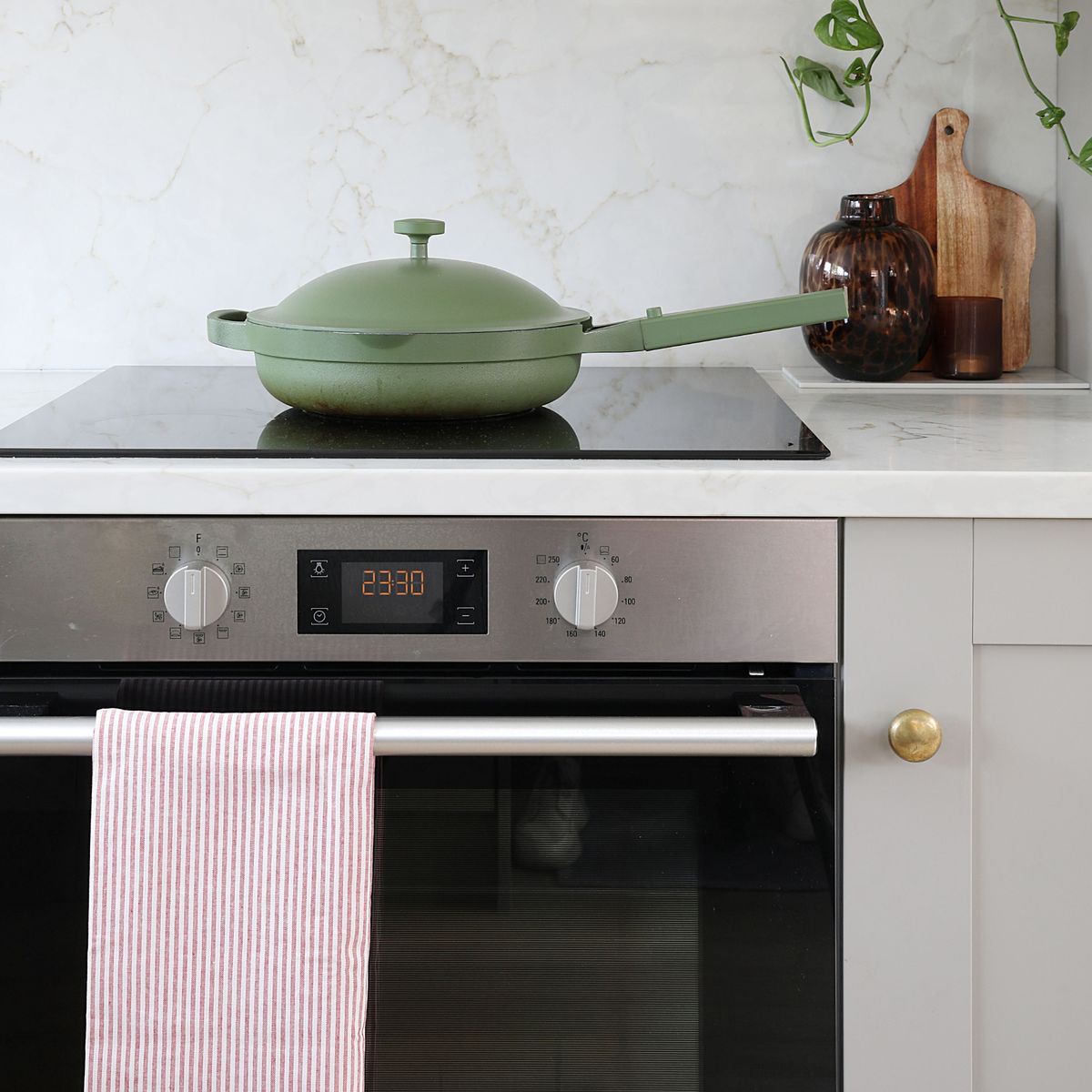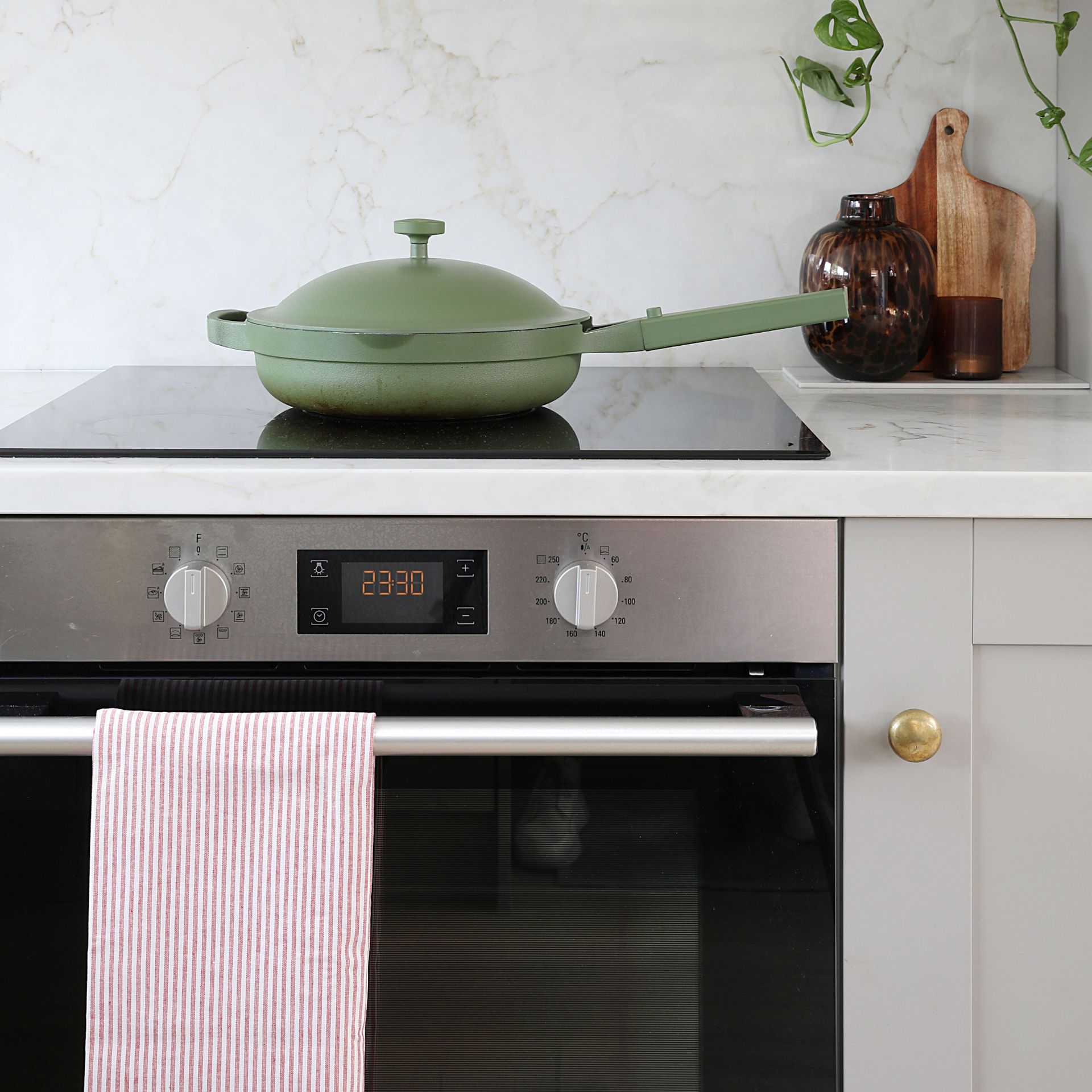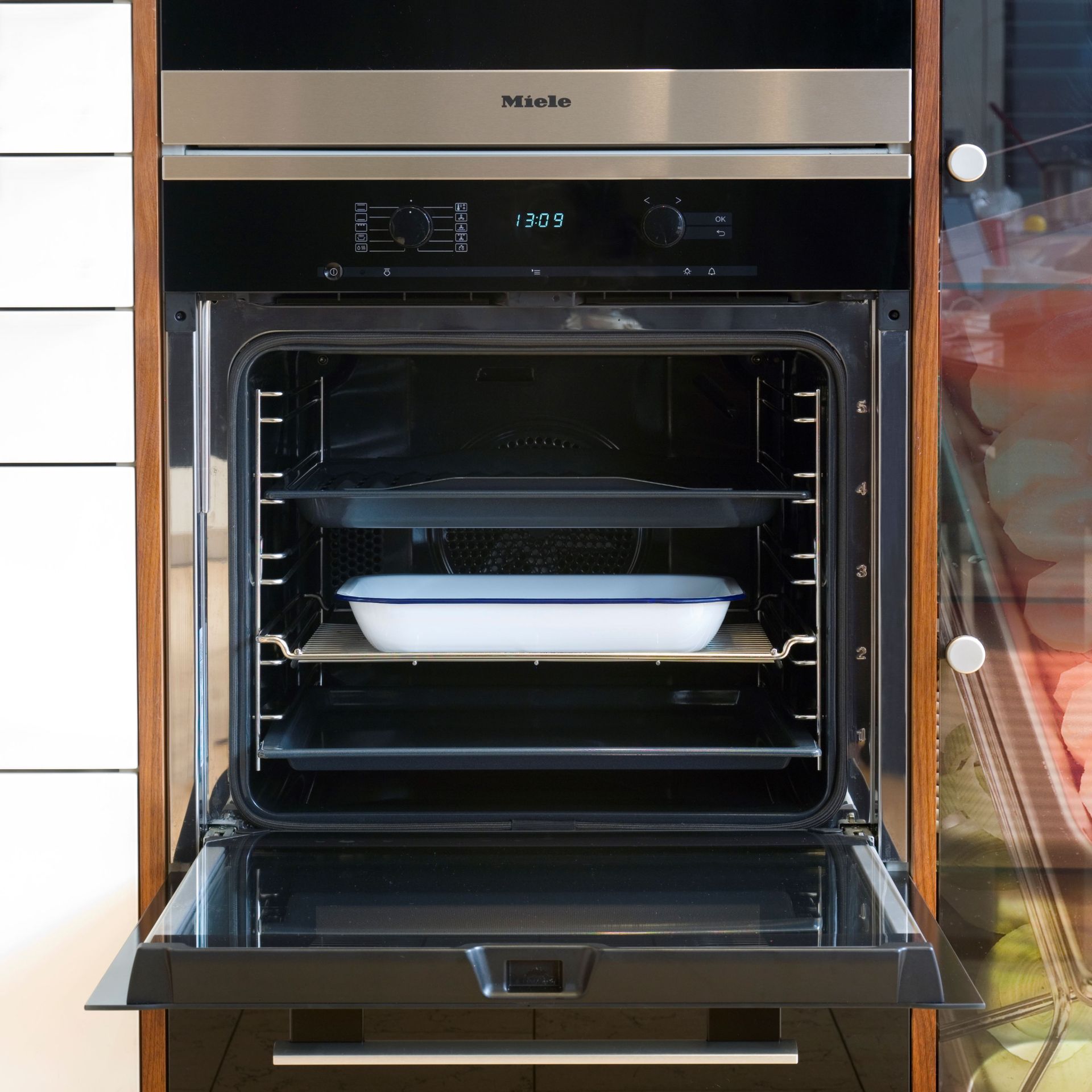We’ll be one of the first to admit that cleaning our oven is a task that we’d prefer to delay as much as possible, given that it’s quite the commitment. Knowing how to clean an oven is essential, but truth be told many of us are probably not deep cleaning our ovens as frequently as we should be.
A survey conducted a couple of years ago revealed that ovens are cleaned an average of just once every 18 months (yikes). While a lot of people may have made the switch to snagging the best air fryer in an attempt to save energy at home this winter, ovens are easily still an appliance used very often in many households – especially now that it’s hosting season.
Kitchen appliance experts have warned us of the dangers of not cleaning your oven often enough – and we all ought to pay attention.
(Image credit: Future PLC/Katie Lee)
Why it’s important to clean your oven regularly
‘It’s important that consumers clean their ovens regularly to prevent fat and leftover food from accumulating, especially on the surfaces of the interior and the exterior, the door and the seal,’ starts Jessica Rhodes, product and marketing manager at domestic appliance company, ASKO.
‘Keeping an oven clean not only prolongs its life but also keeps it running at optimal efficiency.’
Here are some key reasons why you should be cleaning your oven regularly.
A dirty oven increases your energy bills
‘A dirty oven can add up to 10% more to an energy bill than a clean oven,’ adds Mike Harris, founder of Oven Rescue Group.
Jessica chimes in, ‘If an oven is filled with food debris and grease, it can obstruct the heat distribution and thus increase the time taken to cook food. This then puts pressure on fans and thermostats to work harder, resulting in higher energy bills.’
‘As we move into winter, with increased energy bills, we’ll all be looking at ways we can reduce our costs. Cleaning your oven is one of the simplest ways to reduce gas and electric bills, by allowing equal heat distribution throughout the oven.’
Keeping a clean oven will allow you to stay clear of this easily avoided energy mistake and cut down the cost of running an oven.
(Image credit: Future PLC)
A dirty oven is bad for your health and changes the taste of your meals
No matter how talented of a cook you are, if you’re not cleaning your oven regularly, it’ll never do your meals justice.
Jessica warns, ‘If consumers let food grease and spills accumulate over time in the oven, it can become a breeding ground for bacteria and mould. This can lead to potentially dangerous health issues, as cooking in a dirty oven risks contaminating the food you are currently cooking with.’
‘Especially in winter when windows and doors are less likely to be open, allowing fresh air inside,’ adds Mike. ‘The smoke emitted from burnt food can contain harmful gasses such as carbon monoxide, sulphur dioxide and nitrogen oxide.’
(Image credit: Future PLC)
Not only that, but Mike warns that ‘the continuous burning of food splatters and spills in an oven can develop carbon-based fumes over time, which then get into your food, changing the taste of your meals.’
‘Residue from leftover food can also leave undesirable smells and odours in the oven, which can then transfer onto your current dishes,’ continues Jessica. ‘The smell of burnt or old food can affect the taste and aroma of your freshly prepared meals.’
Did anyone else just lose their appetite?
FAQs
How often should you clean an oven?
‘How often you use your oven is one of the most determining factors affecting how often you need to clean it,’ starts Mike Harris, founder at Oven Rescue Group. This can be as often as after each use, once a week, or once a month.
‘The average oven is used for just shy of 15 hours per week, so if you use it more, it’s likely your oven will need cleaning more often. Likewise, if you’re usually just warming through food, it is unlikely to get as dirty as it would if you were cooking with oil at high temperatures, or cooking meats or stews regularly.’
Steph Ferreira, head of brand at home appliance company, Whirlpool advises, ‘Wipe it down after each use and give it a good scrub once a month.’
‘A lot of newer ovens have a self-cleaning feature which removes surface dirt, and although they’re good to use between cleans, they aren’t a replacement for a hand clean,’ adds Mike.
What is the best way to clean an oven?
You can buy cleaning products specifically designed to clean your oven, however, natural cleaning remedies are also just as (sometimes even more) effective and will likely cost a lot less.
Ed Knox, director of operations at appliance care provider, Domestic & General advises ‘regularly cleaning your oven with a mix of water, baking soda and white vinegar.’
You can even clean an oven with a lemon.
Mike concludes, ‘For a thorough clean, you really can’t beat a professional. Professional oven cleaners are usually fully trained, meaning they know which products to use for your oven, and how harsh the chemicals need to be to leave it looking like new.’
Well, it looks like it’s time for us to tackle the mammoth task of cleaning our ovens. We’ll catch you on the other side.




